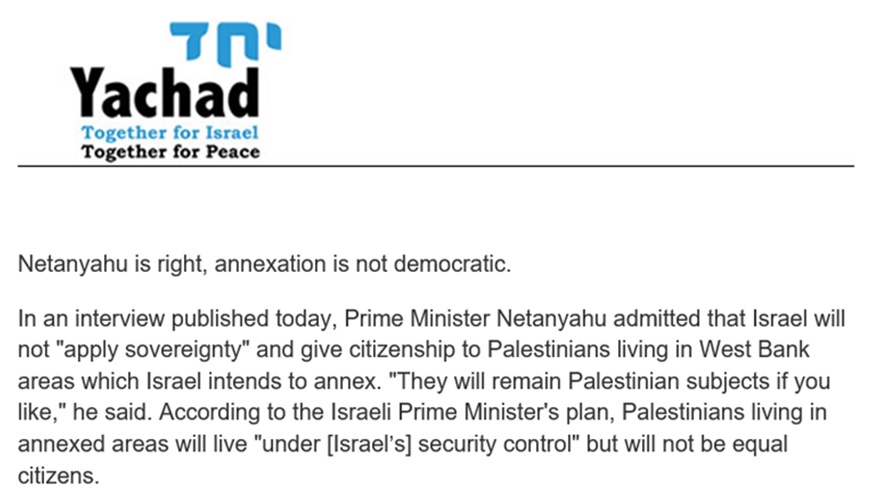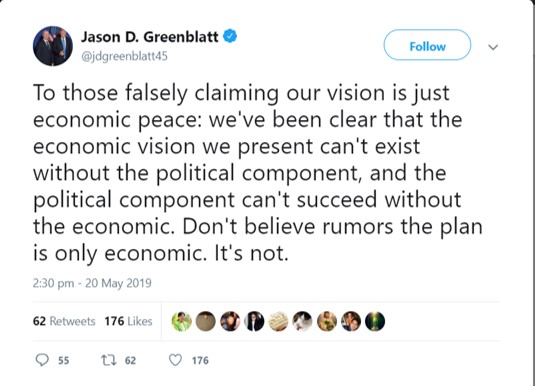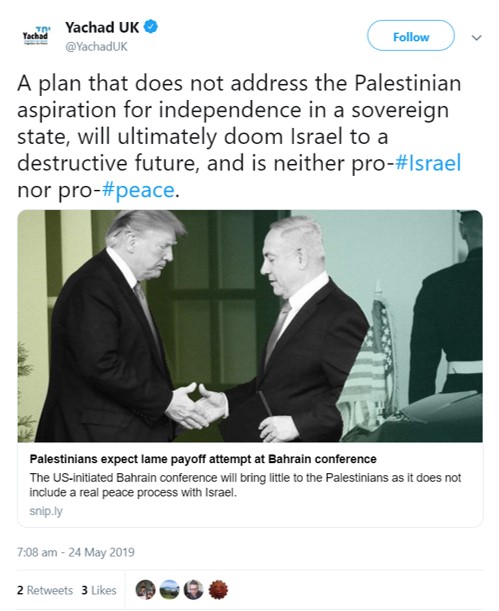Recently, the Israeli Parliament (the Knesset) has adopted a piece of legislation entitled ‘Basic Law: Israel – the Nation State of the Jewish People’. Pretty much everything that happens in Israel can be described as ‘controversial’ if one follows traditional news outlets (let alone the social media). But this new law is certainly even more ‘controversial’ than usual. It has been criticised by many in Israel and by most Jewish organisations in the Diaspora. Others, of course, have defended it.
There are three main ‘strains’ of criticism: the first basically accuses the Israeli legislators of unnecessarily ‘rocking the boat’. Indeed, despite the brouhaha, the new law does not ‘do’ anything; it has no practical effect, it does not change the reality on the ground one iota.
A second type of criticism is that the law is poorly designed and drafted: it includes superfluous articles, while leaving out important principles.
I confess that I feel a lot of sympathy towards both these criticisms. But then there is a third category – those who claim that the law is terribly wrong, even utterly evil. The degree of ‘wrong’ varies between ‘incompatible with democratic principles’ and ‘profoundly racist’ – depending mainly on the critic’s own ideological inclinations.
Confronted with this new development in Israel, most commentators did what they always do – they quoted other pundits. I’m otherwise inclined – rather than playing the pointless ‘X said/Y said’ game, I suggest taking a look at the actual text and analysing it, article by article. Tedious – I know; but also meaningful. Those who have no patience for such things are invited to let journalists tell them what they should see and think.
If you are still with me, let’s see what we have:
1a. The Land of Israel is the historical homeland of the Jewish people, in which the State of Israel was established.
This is only controversial among Israel’s enemies. It’s also hardly new: Israel’s Declaration of Independence famously stated:
The Land of Israel was the birthplace of the Jewish people. Here their spiritual, religious and political identity was shaped. Here they first attained to statehood, created cultural values of national and universal significance and gave to the world the eternal Book of Books.
The League of Nations Mandate also declared
[R]ecognition has thereby been given to the historical connection of the Jewish people with Palestine and to the grounds for reconstituting their national home in that country;
Let’s move on:
1b. The State of Israel is the national home of the Jewish people, in which it fulfils its natural, cultural, religious and historical right to self-determination.
This is nothing else than ‘Zionism in a nutshell’.
The next article is much more controversial:
1c. The right to exercise national self-determination in the State of Israel is unique to the Jewish people.
I’ve heard a lot of criticism that points (without actually quoting it) to this particular article. What I haven’t heard is a counter-proposal. If we’re not saying that, what are we saying?
Are we saying that the Palestinian people also “has the right to exercise national self-determination in the State of Israel”? One can say that, if one is so disposed – but one cannot say that and militate for the two-state solution. If the Palestinian people can exercise self-determination in Israel, then what’s the point of a Palestinian state?
Are we then saying that anyone who’s an Israeli citizen “has the right to exercise national self-determination in the State of Israel”? Again, one can say that – but how then is Israel “the national home of the Jewish people”? How does one justify the Law of Return, which gives any member of the Jewish people (but not to non-Jews) the almost unconditional right to become an Israeli citizen? How does one justify the Jewish character of the state – the flag, the symbols, the holidays, etc.?
Let me quote again from the League of Nations Mandate:
the Principal Allied Powers have also agreed that the Mandatory should be responsible for putting into effect the declaration originally made on November 2nd, 1917, by the Government of His Britannic Majesty, and adopted by the said Powers, in favor of the establishment in Palestine of a national home for the Jewish people, it being clearly understood that nothing should be done which might prejudice the civil and religious rights of existing non-Jewish communities in Palestine, or the rights and political status enjoyed by Jews in any other country.
It seems rather obvious: the League recognises that the ‘national rights’ belong to the Jewish people; when it comes to “the existing non-Jewish communities in Palestine”, it sees only “civil and religious [but not national]rights”.
This is further strengthened in Article 4 of the Mandate:
An appropriate Jewish agency shall be recognised as a public body for the purpose of advising and co-operating with the Administration of Palestine in such economic, social and other matters as may affect the establishment of the Jewish national home and the interests of the Jewish population in Palestine, and, subject always to the control of the Administration to assist and take part in the development of the country.
… and Article 7:
The Administration of Palestine shall be responsible for enacting a nationality law. There shall be included in this law provisions framed so as to facilitate the acquisition of Palestinian citizenship by Jews who take up their permanent residence in Palestine.
No equivalent provisions were envisaged for the non-Jewish communities.
Nor was that view abandoned with the dissolution of the League of Nations and its replacement by the United Nations. UN General Assembly Resolution 181(II)/29 Nov. 1948 called for the establishment of two states and it referred to them as “the Jewish state” and “the Arab state” – although both states were to include minorities belonging to the other ethnicity. In each state, the Resolution called for:
Guaranteeing to all persons equal and non-discriminatory rights in civil, political, economic and religious matters and the enjoyment of human rights and fundamental freedoms, including freedom of religion, language, speech and publication, education, assembly and association;
Again, the reference is to “civil, political, economic and religious [rights] […] and fundamental freedoms”, but not to ‘national rights’, or ‘national self-determination’. To the authors of the Resolution, it seemed obvious that the ‘national’ rights in the Jewish state belonged to Jews – why else would they define it as “the Jewish state”?
Finally, Israel’s Declaration of Independence proclaimed
the natural right of the Jewish people to be masters of their own fate, like all other nations, in their own sovereign State.
The Declaration also states:
The State of Israel […] will ensure complete equality of social and political rights to all its inhabitants irrespective of religion, race or sex; it will guarantee freedom of religion, conscience, language, education and culture;
Just like the previous documents, the Declaration differentiates between on one hand ‘national rights’ (which it assigns to the Jewish people); and on the other hand other individual and collective rights, as well as basic freedoms, which are to be enjoyed by all inhabitants of the State, without discrimination.
Still, to people coming from a certain ideological environment, all this does not sound right. In a recent Jewish Chronicle article, Jonathan Freedland fulminates:
Israel has explicitly granted collective rights to one group of citizens and denied them to another.
The article implies that this is inherently racist; it even hints that Israel may now be accused of apartheid – with more justification than before. The author then goes on to claim that Israel is no longer a democratic country:
Those used to shouting that ‘Israel is the only democracy in the Middle East’ will need to find another slogan — because this is not how democracies behave.
Except that Freedland’s own country recognises Christmas and Easter as official state holidays (‘bank’ holidays). Neither Rosh Hashanah, nor Eid-El-Fittr (or indeed Diwali, the Chinese New Year, etc.) enjoy that status. The Christian cross (but not the Star of David or the Islamic Crescent) features on the national flag. The Church of England is UK’s Established Church and no other faith has that status; the Head of State is also the Head of the Church, etc. It would seem that – on some level at least – the UK has “granted collective rights to one group of citizens and denied them to another.”
UK does not have a constitution, so that ‘granting’ is done in practice. But other countries do it explicitly – in fact at least as explicitly as Israel did.
Let’s have a look, for instance, at the Slovak Constitution. Its Preamble proclaims:
We, the Slovak nation, mindful of the political and cultural heritage of our forebears, and of the centuries of experience from the struggle for national existence and our own statehood, in the sense of the spiritual heritage of Cyril and Methodius and the historical legacy of the Great Moravian Empire, proceeding from the natural right of nations to self-determination, together with members of national minorities and ethnic groups living on the territory of the Slovak Republic, in the interest of lasting peaceful cooperation with other democratic states, seeking the application of the democratic form of government and the guarantees of a free life and the development of spiritual culture and economic prosperity, that is, we, citizens of the Slovak Republic, adopt through our representatives the following Constitution.
Note that the Preamble postulates a “Slovak nation” acting “together with members of national minorities and ethnic groups”. The term “together with”unites, but also divides. It clearly says that “members of national minorities and ethnic groups” are not part of the “the Slovak nation”, though they arepart of the citizenry of the Slovak Republic. In fact, the Preamble establishes two kinds of “we” – two collectives:
- “We, the Slovak nation”, and
- “we, citizens of the Slovak Republic”.
The equation it draws is: “We, the Slovak nation” + “national minorities and ethnic groups” = “we, citizens of the Slovak Republic”
How is this fundamentally different from ‘Jewish people’ and ‘Israeli citizens’?
Crucially, the Slovak Constitution talks about “the natural right of nations to self-determination” – a discussion included in the “Slovak nation” term of the equation and not in the ‘minorities/citizenry’ one.
This is not mere semantics. Slovakia is home (but obviously not ‘national home’) to a sizable – circa 10% – ethnic Magyar (Hungarian) minority, which has lived in the country for many centuries.
 |
| Demographics of Slovakia: the yellow areas have majority Magyar population. |
Yet the Preamble to the Slovak Constitution is designed in ethnic terms. References to “the spiritual heritage of Cyril and Methodius and the historical legacy of the Great Moravian Empire” are no doubt very meaningful to the (West-Slavic) “Slovak nation”; but the (non-Slavic) Magyar minority may find it hard to identify with such symbols of Slavic character. In fact, they may be decidedly underwhelmed by “the historical legacy of the Great Moravian Empire” (830-907 CE) and prefer to remember the Kingdom of Hungary, which – from circa 1000 CE until after World War I – included the territory of modern-day Slovakia.
The Slovak Constitution is not some outdated document, preserved merely by tradition: it was adopted in 1992.
Has Jonathan Freedland read the Slovak Constitution? Would he say that it “has explicitly granted collective rights to one group of citizens and denied them to another”? Would he say that it justifies claims of ‘apartheid’?
Yet Slovakia acceded to the European Union in 2004. The
accession process involves punctilious verification that the country fulfils the
Accession Criteria, the first of which is:
political criteria: stability of institutions guaranteeing democracy, the rule of law, human rights and respect for and protection of minorities;
The European Union has judged Slovakia (with the Constitution I quoted from above) to fulfil the criterion above.
But let us return to the Israeli Nation State Law. Paragraph 3 says:
3. The capital of the state: Jerusalem, complete and united, is the capital of Israel.
In the case of Israel (and only in the case of Israel!) this is seen by many as controversial. But it isn’t new: it is nothing but ‘copy and paste’ from another Israeli law – ‘Basic Law: Jerusalem, Capital of Israel’, adopted in 1980! Paragraph 1 of that law states:
Jerusalem, complete and united, is the capital of Israel.
Another controversial provision of the Nation Law states:
4a. The state’s language is Hebrew.
4b. The Arabic language has a special status in the state; Regulating the use of Arabic in state institutions or by them will be set in law.
4c. This clause does not harm the status given to the Arabic language before this law came into effect.
so-called Jewish nation state bill […] downgrades Arabic from official language status
Except that Arabic has never been an official language in the State of Israel. It has been (along with Hebrew and English) an official language in the British Mandate of Palestine. While the State of Israel never declared Arabic (or English) an official language, it did enshrine in its laws and regulations the obligation of state institutions to provide services in Arabic, as well as Hebrew. Articles 4b and 4c of the new law in effect guarantee the continuation of that obligation.
But is that (to borrow Jonathan Freedland’s expression)
“how democracies behave”? Let’s start with Jonny’s own country: it may surprise him to learn that the official language of the United Kingdom is English and…
English. Of course, the UK government provides services in Welsh (and occasionally in Hindi, Punjabi, Gujarati, Bengali, etc.) – but these are not official languages in the UK.
The official language of Sweden is Swedish, notwithstanding the fact that a sizable proportion of Sweden’s population has Finnish as their mother tongue.
When it comes to language, Slovakia is infinitely harsher than Israel: a 2009 amendment to the ‘Language Law’ not only establishes Slovak as the only ‘state language’ throughout the country’s territory, but severely restricts the use of Hungarian – even among ethnic Magyars.
The Law […] seeks to regulate any and all meetings, gatherings, associations and other forms of communication by insisting on the parallel use of the ‘state language’, Slovak, whenever and wherever members of the minority get together in public, and ‘public’ is very broadly defined. Thus, if a group of Hungarian-speakers establish a literary circle, say, their proceedings would have to have a parallel Slovak translation, whether anyone actually needed this or not. Minority-language schools are obliged to run their administration and documentation in Slovak and the same applies to the health service. The armed forces, the police and the fire service are to be monolingually Slovak. This last, by way of example, creates interesting scenarios – thus in a Hungarian-speaking area, the firemen are very likely to be all Hungarian-speakers, but when putting out a fire, they must speak Slovak to each other and also, of course, to the owner of the house where the fire is.
Violating the Slovak Language Law is punishable by a fine of EUR 5,000 (equivalent to 5-6 months’ average wages in Slovakia).
But let’s go back to Israel’s newly adopted Nation State Law:
2a. The name of the state is ‘Israel.’
2b. The state flag is white with two blue stripes near the edges and a blue Star of David in the center.
2c. The state emblem is a seven-branched menorah with olive leaves on both sides and the word “Israel” beneath it.
2d. The state anthem is “Hatikvah.”
Details regarding state symbols will be determined by the law.
Jonathan Freedland might see these provisions as less controversial. He would be wrong again, however. It’s in the eye of the beholder, apparently.
Adalah is a foreign-funded Israeli Arab organisation which set as its mission
to promote human rights in Israel in general and the rights of the Palestinian minority, citizens of Israel, in particular.
Among other projects, Adalah compiled a database of Israeli ‘racist laws’ – laws that, in the organisation’s view, discriminate against the Arab minority. This includes, for instance, the Flag and Emblem Law (adopted by the Knesset in 1949). Adalah explains that the law
Adopts the flag of the First Zionist Congress and the Zionist Movement [which Adalah considers a colonial enterprise], a combination of a prayer shawl and the Shield of David, as the official flag of Israel. The emblem of the State of Israel is a candelabrum, one of the symbols of the Temple era in Jewish history.
 |
| The Constitution of (EU member) Malta proclaims in Chapter 2: “The religion of Malta is the Roman Catholic Apostolic Religion. […] Religious teaching of the Roman Catholic Apostolic Faith shall be provided in all State schools as part of compulsory education.” |
Back to the Nation State Law:
5. Ingathering of the exiles: The state will be open for Jewish immigration and the ingathering of exiles
6. Connection to the Jewish people
6a. The state will strive to ensure the safety of the members of the Jewish people in trouble or in captivity due to the fact of their Jewishness or their citizenship.
6b. The state shall act within the Diaspora to strengthen the affinity between the state and members of the Jewish people.
6c. The state shall act to preserve the cultural, historical and religious heritage of the Jewish people among Jews in the Diaspora.
Jonathan Freedland appears to object less to these provisions. Frankly, I can’t understand why. If Israel is the embodiment of the Jewish right of self-determination, then they are easy to understand as expressions of that right; but if Israel embodies the right of self-determination of its Arab (or Palestinian Arab) citizens, then how does Freedland justify them? Surely, that position should imply that Israel is obligated to rise to the defence of Palestinian besieged in the Yarmouk refugee camp – just as it would do if Yarmouk’s inhabitants were Jewish? And why should the state “be open for Jewish immigration”, but not for Palestinian Arab immigration (or indeed for the ‘return’ of Palestinian refugees and their descendants)? Freedland’s (unstated, but implied) views necessarily lead to the position of Adalah, which postulates that Israel’s preferential immigration law is discriminatory and racist.
7. Jewish settlement: The state views the development of Jewish settlement as a national value and will act to encourage and promote its establishment and consolidation.
Here, a tedious linguistic explanation is necessary: the English word 'settlement' is likely to be misinterpreted, because it’s been intensively used (and abused) in relation to Israeli towns and villages beyond the Green Line. But that would be a mistranslation. The Hebrew word for ‘settling beyond the Green Line’ is ‘hitnahalut’. But the law talks about “hityiashvut” – which is the word used for Jewish settlement before the establishment of the State (the term Yishuv – used to refer to the Jewish community in the British Mandate of Palestine – comes from the same root). So no – this has nothing to do with the ‘illegal settlements’.
In fact, this paragraph of the law mimics the language of the League of Nations mandate, which called on the Administration of Palestine to “encourage […] close settlement by Jews on the land”.
Back to the Nation Law again:
8. Official calendar: The Hebrew calendar is the official calendar of the state and alongside it the Gregorian calendar will be used as an official calendar. Use of the Hebrew calendar and the Gregorian calendar will be determined by law.
9. Independence Day and memorial days
9a. Independence Day is the official national holiday of the state.
9b. Memorial Day for the Fallen in Israel’s Wars and Holocaust and Heroism Remembrance Day are official memorial days of the State.
10. Days of rest and Sabbath: The Sabbath and the festivals of Israel are the established days of rest in the state; Non-Jews have a right to maintain days of rest on their Sabbaths and festivals; Details of this issue will be determined by law.
These paragraphs sketch the Jewish character of the state. Once more, they might look less controversial to Jonathan Freedland – but these aspects are listed in Adalah’s database of ‘discriminatory laws in Israel’.
 |
| The national anthem of Cyprus praises the “Greeks of old”. Which might not impress the country’s ethnic Turkish citizens. |
Finally:
11. Immutability: This Basic Law shall not be amended, unless by another Basic Law passed by a majority of Knesset members.
Which says that the Nation State Law can only be amended by another Basic Law – and not by ‘just any old law’.
***
When all is said and done, the crux of the matter remains paragraph 1c, which makes “national self-determination in the State of Israel” a unique prerogative of the Jewish people.
Jonathan Freedland believes that this is inherently undemocratic and racist; that it turns Arab Israelis into ‘second-class citizens’.
As I’ve shown, if this is true of Arab Israelis, it is also true of Slovak Magyars and other minorities. But is it? Well, it depends on the ideology one chooses to subscribe to. More precisely, it depends on where one chooses to position oneself on the universalism-vs.-particularism scale (I’ve touched briefly on this subject
here).
For extreme universalists, states (viewed at best as a temporary and necessary evil) exist as artificial constructs, aimed at placing barriers between people. For extreme particularists, they are exclusive ethnic fortresses, to be fiercely defended against any foreign trespassers. In-between, however, there is a wide range of legitimate opinions.
Sadly, in Jonathan Freedland’s world, there is but one ‘good’ opinion (indeed, just one legitimate world view) – the one he subscribes to. Anyone who dares disagree is automatically placed outside what David Hirsch calls ‘the community of the Good’; s/he is racist, undemocratic, etc. Well, I’m afraid, Jonny dear, that this in itself smacks of intolerance and bigotry.
I resent ethnic exclusivism and despise ethnic supremacism; but I also view the state as repository of a people’s historical and cultural heritage, a ‘safe space’ for a particular flavour of humanity to develop and grow. Complemented and enriched by others – yes; overwhelmed by others – no.
In its most profound sense, ‘national self-determination’ means the right of a people to impart to their state its distinct, unique, ‘national’ character. It’s about flavour and texture Jonny – not power and subjugation.
I strongly believe that Arab Israelis should have equal political, civil, economic and social rights, as well as personal and collective freedoms. They should be free to use their own language, to develop, enjoy and pass on to future generations their own culture. Israel is their home – in every sense but one. Physically, politically, legally, economically and socially Arab Israelis fully ‘belong’ in the State of Israel – just like Slovak Magyars ‘belong’ in Slovakia. But we also need to understand that Arab Israelis will always look to the Arab world (and – one day if they so desire – to a Palestinian Arab state) as their cultural and ‘national’ home. Just like Slovak Magyars will look to Hungary; just like Swedish Finns look to Finland; and – dare I say – just like British Jews look to Israel. There is nothing wrong with that; nothing untoward or illegitimate. That makes them neither a ‘fifth column’, nor ‘second class citizens’.
These are my views. Jonathan Freeland is, of course, welcome to his opinions – as long as they are logical and consistent. But there is a huge internal contradiction in his world view: even while railing against Israel’s Nation Law, Mr. Freedland is asking the UK Labour Party to adopt in full the IHRA Definition of Antisemitism. Jonathan objects to the fact that Labour has excluded from their Code of Conduct some of the examples of antisemitism – including
Denying the Jewish people their right to self-determination, e.g., by claiming that the existence of a State of Israel is a racist endeavo[u]r.
But if Jonathan claims that the right of self-determination of Palestinian citizens of Israel should be satisfied in Israel, then it follows that the right of self-determination of British Jews should be satisfied in Britain (and that of Russian Jews in Russia, etc.) How, then, does Jonathan Freedland justify his other claim, that the right of self-determination of Jews is embodied by the State of Israel and that denying that right (i.e. denying Israel’s right to exist as the State of the Jews) is an antisemitic prejudice? And how does he justify his demand for a separate Palestinian state?
Ideology is like alcohol: it affects people’s ability to think straight and constrains their peripheral vision. One should neither drive a car, nor write a political article while ‘under the influence’!















- Follow Us on Twitter!
- "Join Us on Facebook!
- RSS
Contact